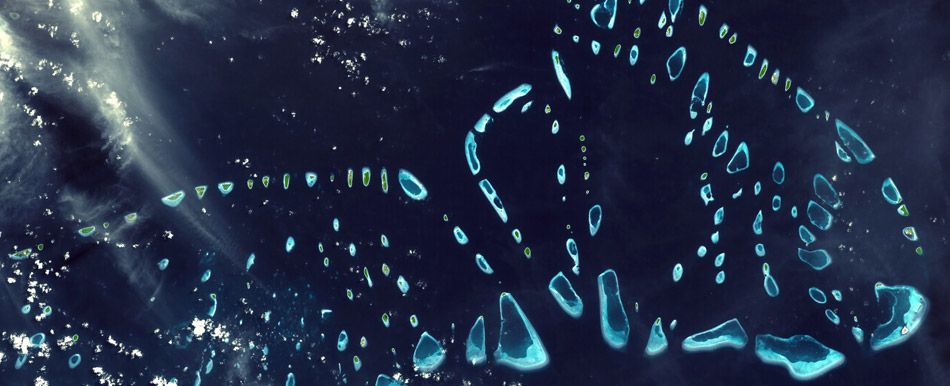Baa Atoll, Maldives – A UNESCO World Biosphere Reserve
Last month at the 40th anniversary of the United Nations Educational, Scientific and Cultural Organisation’s (UNESCO’s) ‘Man and the Biosphere Program’ in Dresden, Germany the entirety of Baa Atoll in the Republic of Maldives was declared a UNESCO World Biosphere Reserve.
World Biosphere Reserves are places where conservation, research and development successfully interconnect. They integrate biological and cultural diversity, combining core protected areas with zones where sustainable development – and innovative approaches to it – are fostered, tested and developed by locals and enterprises alike. Baa Atoll joins an illustrious list of international Biosphere Reserves including: The Galapagos Islands, Ayer’s Rock in Australia, the Pantanal wetlands of Brazil, the Niagara escarpment in Canada, the Sundarbans of India, and the Amboseli National Park in Kenya.
Baa Atoll is one of the Republic of Maldives’ 26 geographical atolls, covering an area of 1,200km² it contains some of the richest coral reef systems in the world, which literally and metaphorically support the local communities and a thriving tourism industry. UNESCO recognizes Baa Atoll’s “great potential for demonstrating sustainable development throughout the Maldives and the region, while relying on a green economy.” The jewel in the biological crown of Baa Atoll is a tiny bay called Hanifaru, where seasonal gatherings of manta rays and whale sharks have made this site world famous in recent years, attracting hordes tourists from across the globe to immerse themselves in the tropical waters amongst a feeding frenzy of these gentle giants.
For the last five years the Save Our Seas Foundation (SOSF) and the Four Seasons Resort at Landaa Giraavaru in Baa Atoll have supported my research and conservation work through the Maldivian Manta Ray Project (MMRP). I am therefore delighted at UNESCO’s announcement of World Biosphere Reserve status for Baa Atoll, especially as Hanifaru is to become one of the reserves core protected areas. This designation is the culmination of many years of hard work and planning by the Maldivian Government, whom I have been working closely with for the last four years, pushing for greater protection of this special site. With Hanifaru declared an official Marine Protected Area (MPA) in 2009, and now with the implementation of a site specific management plan for this core protected area, the future for Hanifaru Bay and its visitors looks promising. However, this ecologically and economically important site exemplifies the current trend across the entire Maldivian Archipelago, where nature and tourism struggles to find an equilibrium; as economic growth and development threatens to undermine the natural foundations upon which this coral island nation so intrinsically depends. It is therefore extremely important that these titles of protective intent are translated into real conservation on site.
In a world which is driven by economics, it is simply not enough to say to governments, or local communities, that you should protect a species, or its habitat, simply for its intrinsic or scientific value alone. Unfortunately we live in a world where the majority of people just do not have that luxury of choice to care, or the education to overcome the ignorance which leads to a lack of empathy. The reality is that nature must pay for itself in a tangible and direct way. Those entrusted with its protection should not only be obliged by law to protect, they must also have the will and the desire to do so. This philosophy is at the heart of UNESCO’s World Biosphere Program, which is why I am confident that Hanifaru will become a place where manta rays, tourism and the local communities can, and should, all benefit from its existence. Where the road to sustainable management is a real and effective path upon which the conservation of our oceans, and its resources, can travel for the future benefit of all, forever.

